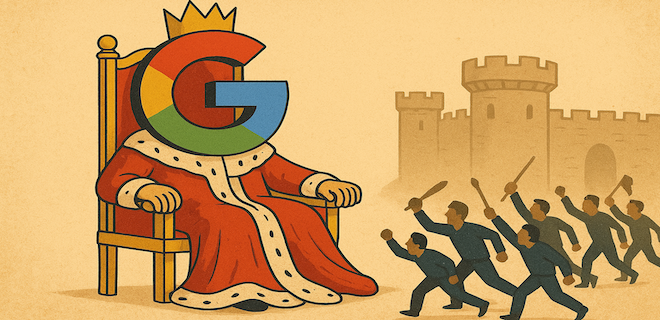
During Google’s ad tech trial last fall, publishers took the stand to share how harmed they were by Google’s monopolistic ad business.
And now they are seeking justice.
People Inc. filed a lawsuit against Google August 29, seeking compensation for revenue lost from Google’s monopolistic ad tech business.
Serving more than 175 million monthly users across brands like People, Better Homes & Gardens and Investopedia, People Inc. states it’s the largest publisher in the US. For publishers, the Dotdash Meredith lawsuit marks a significant moment and begs the question: Will other publishers follow in the path cleared by this publishing giant ?
The lawsuit challenges Google’s decades-long dominance in programmatic auctions, ad servers, and the so-called “free” technology that powers much of the open web’s advertising revenue.
OpenX and Dotdash Meredith: Two Battles in the Same War
People Inc.’s lawsuit is the first major publisher lawsuit following the DOJ ruling. The 88-page filing details how Google’s bundled ad server and AdX exchange locked publishers in. The bundle undermined publishers revenue by depressing pricing structures and preventing competition between other demand sources.
While People Inc. is the first publisher to detail how it was harmed by Google in a lawsuit, the SSP OpenX was the first to file a follow-on damages suit. In its lawsuit, filed in early August, OpenX alleges Google used its control to cripple competitors forcing its ad server rivals into untenable positions such as manipulating digital ad auctions through programs like “Last Look” and Project Poirot. Tactics like this effectively killed off OpenX’s ad server, which shut down in 2019.
Another major SSP, Magnite, hinted at a similar suit in its earnings call on August 6th.
Both lawsuits share core claims: Google’s bundling under Google Ad Manager (GAM) cut off competition and manipulated auctions. But People Inc.’s lawsuit brings the publisher’s plight to the forefront. It details that Google’s ad tech practices slashed the premium that publishers like People Inc. could charge for direct-sold inventory compared to programmatic by about 50%. The estimated revenue losses, shrinking direct sell premiums and auction manipulation hit People Inc.’s pockets hard.
But Google’s grip on the ad space can’t be let go so easily.
“We’re 100% reliant on GAM as our ad server,” said Justin Barton, SVP of Digital Strategy and Partnership, Black Enterprise.
Change will benefit publishers. “Separating GAM and AdX, letting AdX compete directly with other SSPs in Prebid” would be a complete gamechanger to give publishers auction transparency and increased revenue, he said.
Operational Impact and the Road Ahead
Barton warns that litigation could be challenging, especially for smaller publishers.
“It would be tough for the average publisher to take this path,” said Barton. “Publishing is in structural decline, revenues and CPMs are declining, so it would be difficult for the average publisher to afford to legally go up against any of the big players.”
But he could foresee a future where smaller publishers join a class action suit against Google – piling on to the many legal battles the ad giant is fighting.